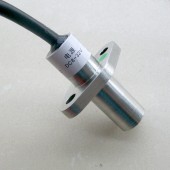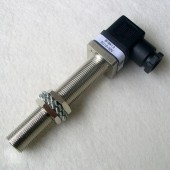| Guidance 指路人 g.yi.org |
software / rapidq / Examples / Registry & INI / QFileAssociation / SetFileAssociation.Txt |
|
' ' ============================================================================= ' FileAssociation.Txt April 2004 by Jacques PHILIPPE ' ' Association of an Executable to a File Extension ' Function Version 0.0.1 beta ' ============================================================================= ' ***** WITH NO WARRANTY. USE AT YOUR OWN RISK. I USE IT ***** ' ============================================================================= ' ' Function SetFileAssociation (FileExtension As String, Command As String) As Long ' -------- ' - FileExtension : the file extension with its dot to be associated with the ' command : IE ".Bas". Maximum 4 characters + the dot. ' - Command : the path of the application to execute for that file extension ' add " %1" if the file must be passed to the application as a command line ' argument (always add %1). ' - returned values : 0 on failure, argument missing or more than 5 characters with dot, ' 1 on OK ' ' Simply set a new file association. The old one is overwritten. ' ' Example : ' ------- ' $Include ("FileAssociation.Inc") ' iError = SetFileAssociation (".Bas", "c:\Windows\Notepad.Exe %1") ' ============================================================================= ' Const SFAF_HKEY_CLASSES_ROOT = &H80000000 Function SetFileAssociation (sFileExtension As String, sCommand As String) As Long DefStr sDescriptor, sFileExt Dim regFA AS QRegistry With regFA .RootKey = SFAF_HKEY_CLASSES_ROOT ' Check If File Extension is not Empty If sFileExtension = "" Then Result = 0 Exit Function End If ' Check that there is a DOT most left ".Bas" and not "Bas", if missing, I add it. If Left$(sFileExtension, 1) <> "." Then sFileExt = "." & sFileExtension Else sFileExt = sFileEXtension End If ' Maximum four characters plus the dot "." If Len(sFileExt) > 5 Then Result = 0 Exit Function End If sDescriptor = (sFileExt - ".") & "_File" If .KeyExists (sDescriptor) Then ' Delete Old Association Datas if exist .DeleteKey (sDescriptor) DoEvents End If .OpenKey (sFileExt, 1) ' Write/Overwrite new descriptor .WriteString ("", sDescriptor) .CloseKey .OpenKey(sDescriptor & "\\Shell\\Open\\Command", 1) ' Create Key shell\Open\Command .WriteString ("", sCommand) ' Writes the command to execute .CloseKey End With Result = 1 End Function ' |
|
| © Wed 2026-2-18
Guidance Laboratory Inc. Email:webmaster1  g.yi.org Hits:0 Last modified:2013-06-19 07:50:45 g.yi.org Hits:0 Last modified:2013-06-19 07:50:45
|
 |
|||
|
|
 搜索
搜索 论坛
论坛 Home
Home 回顶部
回顶部







